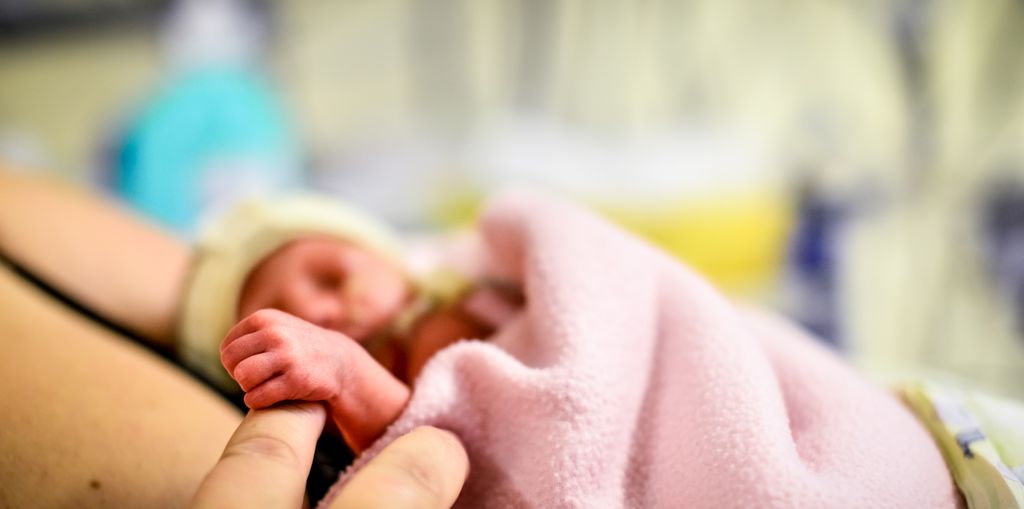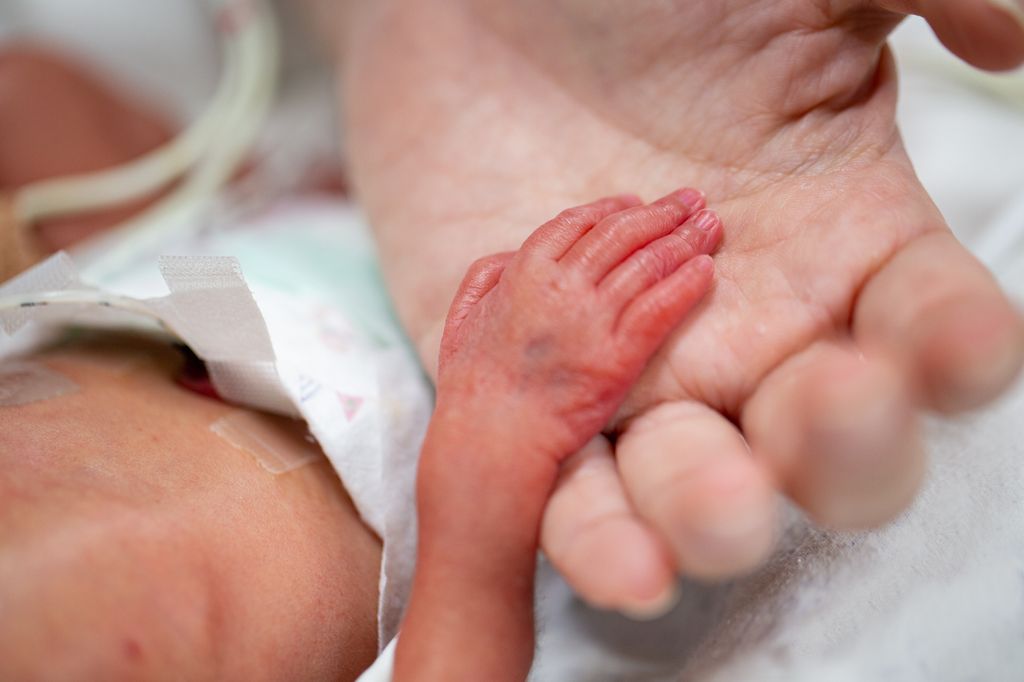In Spain, every year there are about 8,500 pregnant women who lose their babies. It is estimated that about 6,000 could benefit from fetal and perinatal palliative care. He Dr. Álvaro Navarro Mincorande is the president of PEDPAL (Spanish Society of Pediatric Palliative Care). We have talked with him about this topic.
What is perinatal palliative care?
“Fetal and perinatal palliative care is that palliative care that are intended for children and families of children, in which A severely life-threatening or life-limiting illness is diagnosed in the fetal period or just after birth. This means while the child is developing inside the mother or immediately after birth,” says the expert.
There are children in whom very serious diseases are detected in control ultrasounds during pregnancy that imply that they will only live for a very short period of time (hours, days, weeks…), in any case, they will not to reach adulthood, and others in which these problems are discovered at birth.
It is not about extending life, but about expanding it, so that it is the best possible.
All these babies from gestation to the first month of life, which is as far as the perinatal stage reaches, would be the ones to whom this palliative care would be allocated, along with their families.
Ideally, all hospitals that have maternity facilities would have a team trained in perinatal palliative care. to give that support to both the baby and those around him. What’s more, the director of PEDPAL (Spanish Society of Pediatric Palliative Care) puts another situation on the table: that of women who during pregnancy are warned that their child may die in utero (before birth) or shortly after birth. , because there are very severe limitations.
In this case, Dr. Navarro advocates offering these women the support of perinatal palliative care, since not all of them will opt for a voluntary termination of pregnancy, or would not carry it out if they knew about this other support option while the child remains alive outside the mother’s womb.
What are the most frequent cases treated in perinatal palliative care?
The cases that are treated in Perinatal Palliative Care usually correspond to serious malformations detected in utero, such as some chromosomal anomalies, such as trisomies 13 and 18 (Patau syndrome and Edwards syndrome, respectively)or other cardiac or renal types, as detailed by the specialist. Although it is often said that these are situations incompatible with life (or incompatible with extrauterine life, since the baby, in fact, is alive in the mother’s womb), “some of them live for years, without major medical interventions, and others with some.”
There are other children who reach the end of pregnancy without problems, but die at birth due to a specific problem, such as alterations in the mother’s coagulation, some vascular anomaly… And others who suffer some type of suffering during childbirth, such as perinatal asphyxia, which will cause very serious neurological damage, which, sometimes, ends in death.
Very premature babies would also be recipients of this palliative care. Depending on the country, The viability of the child is between 22 and 24 weeks of gestation and 350-450 grams of weight. “All those children who are born prematurely before those weeks are going to die shortly after birth, but they are born alive, and these children deserve to be treated like children, who are alive, and to receive love and be supported by their family,” he highlights. the president of PEDPAL. Thus, a few years ago, some died alone, without their parents even having seen them. Now this has changed and those little ones are accompanied until the end.
The baby is welcomed as a person who is already in the world and is given the importance and individuality it deserves.
How do you accompany babies and their families?
The support provided in Perinatal Palliatives is comprehensive and multidisciplinary. Various medical professionals come into play and the entire process is approached from all possible avenues. First of all, the physical needs of the child must be met,“which would be the symptoms that the child may have, such as pain, feeling of lack of air, cold, hunger, thirst…”. The main objective is that there is no suffering on your part.
On the other hand, in the case of the family, emotional and psychological management of the very difficult moment they are going through is carried out, which is accompanied by social counseling (to help them process aid, funeral homes, other papers…) , and all this without forgetting the spiritual aspect, trying to support the family in questions like “why has this happened to us?”, “what’s the point?” or in considering what legacy their child leaves or how they can help other people.
“Once the child has died, This grief is monitored, which will depend on how the family evolves, and which generally lasts between three months and two years, depending on the case,” highlights the specialist.
What are the benefits of perinatal palliative care?
For the baby who goes through such difficult circumstances, this Care allows “welcome him as a person, give him the importance and individuality that he deserves, for being a person who comes into this world and ensure that his life, however long it lasts, whether from minutes, to days, months or years, be it the best possible”, comments Dr. Álvaro Navarro. And he adds: “Without symptoms or with the fewest symptoms possible and without suffering, the aim is to broaden life instead of lengthening it; not so much lengthening it but making it a fuller life without suffering.”
With respect to the family, we work to ensure that “they live that new life of a child who is going to die, but that they live it as a child who comes, who is alive for a while and then leaves and that that is an experience, within the trauma of the loss, let it also be as a gratitude for having met that person. May this imply a better subsequent grief, a better transition towards the loss.”he highlights.
It is not only the parents who are cared for in Palliatives, but also other family members, such as the rest of the children, if there are any, the grandparents (who are experiencing double grief, for having lost their grandson and for seeing the pain). of their own child in the loss)… It is about making the family experience an extremely painful situation in the best possible way, supporting them in grieving and avoiding other mental health complications. Likewise, If in the future they consider having other children, specialists provide them with support “so that they do not remain stuck in a pathological grief and try to make this, which is something that no one wants and that involves great suffering, lived in the best possible way.”


